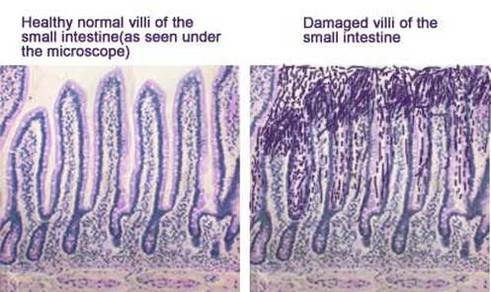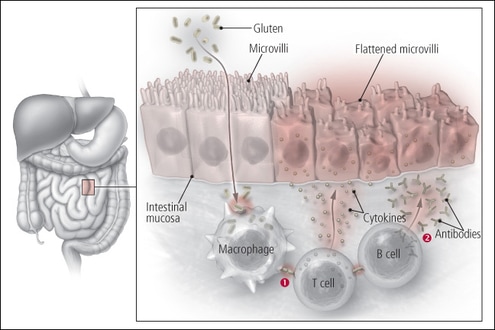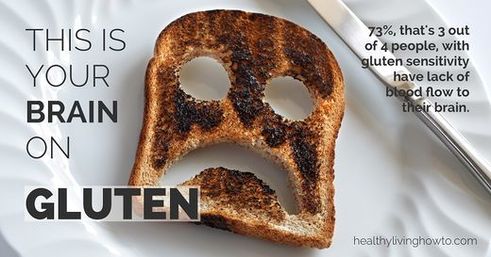🌸
The Most Powerful Nutrients for Bipolar Disorder,
Schizophrenia and Depression
🌸
The Most Powerful Nutrients for Bipolar Disorder,
Schizophrenia and Depression
🌸
- 🌿 MENTAL - HEALTH
- --------------------------------
- 🌿 MIRACLE of NIACIN
- --------------------------------
- Niacin / Mental Illness
- Niacin / Vitamin B3
- Niacin Deficency
- Schizophrenia
- Real Story of Niacin
- --------------------------------
- Lithium Orotate
- --------------------------------
- Anxiety
- Anxiety / 2
- Can Autism Be Cured
- Gut and Mental Illness
- Heal Depression
- Help for Mental Illness
- --------------------------------
- Dr. Abram Hoffer
- Dr. Hoffer's Vitamins
- Dr. Andrew Saul Videos
- Shocking Effects
- --------------------------------
- Mental Health & Gluten
- Mental Health & Wheat
- Medication Withdrawal
- List of SSRI Medication
- --------------------------------
🌸
🌸
🌸
🌸
🌸
Gluten Brain / Wheat
Cuts Off Blood Flow To Frontal Cortex
https://www.sott.net/article/288832-Gluten-brain-Wheat-cuts-off-blood-flow-to-frontal-cortex
🌸
Sayer Ji
Wake Up World
🌸
As far back as 1954, reports of the full or partial resolution of schizophrenia following a gluten free diet began to surface in the medical literature.
We covered this remarkable pattern of associations in a previous article titled,
" 60 Years of Research Links Gluten Grains to Schizophrenia."
🌸
Gluten Brain / Wheat
Cuts Off Blood Flow To Frontal Cortex
https://www.sott.net/article/288832-Gluten-brain-Wheat-cuts-off-blood-flow-to-frontal-cortex
🌸
Sayer Ji
Wake Up World
🌸
As far back as 1954, reports of the full or partial resolution of schizophrenia following a gluten free diet began to surface in the medical literature.
We covered this remarkable pattern of associations in a previous article titled,
" 60 Years of Research Links Gluten Grains to Schizophrenia."
🌸
While the explanation for this intriguing connection has remained focused on the disruption of the gut-brain axis and the presence in wheat of a wide range of pharmacologically active and mostly opioid receptor modulating polypeptides, a new and possibly more disturbing explanation is beginning to surface:
Wheat consumption cuts off blood flow to the brain.
Starting with a 1997 case study published in the Journal of Internal Medicine involving a 33-year-old patient, with pre-existing diagnosis of 'schizophrenic' disorder, who first came to medical attention for severe diarrhea and weight loss (classical symptoms of gluten intolerance), brain scan technology determined that cerebral hypoperfusion (decreased blood flow to the brain) was occurring within the patient's frontal cortex.[i]
A gluten free diet resulted not only in the normalization of intestinal damage and autoantibodies, but the return of blood flow to the frontal cortex, and the resolution of schizophrenic symptoms.
Then, in 2004, a follow up study was performed to verify if the 1997 case study was just a fluke, or perhaps a widespread effect of untreated celiac disease. Published in the American Journal of Medicine, researchers from the Institute of Internal Medicine, Catholic University, Rome, Italy, compared 15 untreated celiac patients without neurological or psychiatric disorders other than anxiety or depression, with 15 celiac patients who were on a gluten-free diet for almost 1 year, and 24 healthy volunteers of similar sex and age. All subjects underwent cerebral single photon emission computed tomography examination.
The results were remarkable, with dramatically increased incidence of impaired brain blood flow in untreated celiac patients, reported as follows:
"Of the 15 untreated celiac patients, 11 (73%) had at least one hypoperfused brain region, compared with only 1 (7%) of the 15 celiac patients on a gluten-free diet and none of the controls (P = 0.01). Cerebral perfusion was significantly lower (P <0.05) in untreated celiac patients, compared with healthy controls, in 7 of 26 brain regions. No significant differences in cerebral perfusion were found between celiac patients on a gluten-free diet and healthy controls."
They concluded: "There is evidence of regional cerebral blood flow alteration in untreated celiac patients."
Discussion
So, let's take a closer look at what cerebral (brain) hypoperfusion means.
Hypoperfusion is simply decreased blood flow through an organ. Whether it is an internal organ like the kidney, a muscle or the brain, the organ will experience lower availability of oxygen (hypoxia) and nutrients, and will therefore function at a suboptimal level.
Cerebral hypoperfusion, therefore, is decreased blood flow to the brain - an organ with extremely high energy demands, and upon which our entire consciousness depends.
Dr. David Perlmutter, author of the #1 New York Times best-selling book Grain Brain, has made great strides in introducing the concept to the world that grains adversely affect brain health.
We know that the carbohydrate content of grains alone contribute to disrupting insulin-mediated glucose homeostasis within neurons, ultimately contributing to their suboptimal functioning and in some cases demise, but the discovery that wheat in particular has blood flow disrupting properties to the frontal cortex of the grain, has profound implications.
For example, it is known that the frontal lobe house the 'executive functions' of the brain, including:
If wheat consumption, through some as of yet unknown mechanism, interferes with blood flow to the brain in susceptible individuals, and as a result disrupts the executive functions of the brain, abstaining from it should be considered a reasonable precautionary behavior, assuming we wish to retain these critical functions related to morality, cognizance, and social responsibility.
For additional research on the adverse health effects of wheat,
read our article:
Wheat: 200 Clinically Confirmed Reasons Not To Eat It.
Also, for more information on the brain-specific harmful effects of wheat, read the following articles or watch the video:
References
[i] A De Santis, G Addolorato, A Romito, S Caputo, A Giordano, G Gambassi, C Taranto, R Manna, G Gasbarrini. Schizophrenic symptoms and SPECT abnormalities in a coeliac patient: regression after a gluten-free diet. J Intern Med. 1997 Nov ;242(5):421-3. PMID: 9408073
Comment:
In view of this research, and with wheat as the staff of life, it's unsurprising if most people can't put two and two together. See also:
Wheat consumption cuts off blood flow to the brain.
Starting with a 1997 case study published in the Journal of Internal Medicine involving a 33-year-old patient, with pre-existing diagnosis of 'schizophrenic' disorder, who first came to medical attention for severe diarrhea and weight loss (classical symptoms of gluten intolerance), brain scan technology determined that cerebral hypoperfusion (decreased blood flow to the brain) was occurring within the patient's frontal cortex.[i]
A gluten free diet resulted not only in the normalization of intestinal damage and autoantibodies, but the return of blood flow to the frontal cortex, and the resolution of schizophrenic symptoms.
Then, in 2004, a follow up study was performed to verify if the 1997 case study was just a fluke, or perhaps a widespread effect of untreated celiac disease. Published in the American Journal of Medicine, researchers from the Institute of Internal Medicine, Catholic University, Rome, Italy, compared 15 untreated celiac patients without neurological or psychiatric disorders other than anxiety or depression, with 15 celiac patients who were on a gluten-free diet for almost 1 year, and 24 healthy volunteers of similar sex and age. All subjects underwent cerebral single photon emission computed tomography examination.
The results were remarkable, with dramatically increased incidence of impaired brain blood flow in untreated celiac patients, reported as follows:
"Of the 15 untreated celiac patients, 11 (73%) had at least one hypoperfused brain region, compared with only 1 (7%) of the 15 celiac patients on a gluten-free diet and none of the controls (P = 0.01). Cerebral perfusion was significantly lower (P <0.05) in untreated celiac patients, compared with healthy controls, in 7 of 26 brain regions. No significant differences in cerebral perfusion were found between celiac patients on a gluten-free diet and healthy controls."
They concluded: "There is evidence of regional cerebral blood flow alteration in untreated celiac patients."
Discussion
So, let's take a closer look at what cerebral (brain) hypoperfusion means.
Hypoperfusion is simply decreased blood flow through an organ. Whether it is an internal organ like the kidney, a muscle or the brain, the organ will experience lower availability of oxygen (hypoxia) and nutrients, and will therefore function at a suboptimal level.
Cerebral hypoperfusion, therefore, is decreased blood flow to the brain - an organ with extremely high energy demands, and upon which our entire consciousness depends.
Dr. David Perlmutter, author of the #1 New York Times best-selling book Grain Brain, has made great strides in introducing the concept to the world that grains adversely affect brain health.
We know that the carbohydrate content of grains alone contribute to disrupting insulin-mediated glucose homeostasis within neurons, ultimately contributing to their suboptimal functioning and in some cases demise, but the discovery that wheat in particular has blood flow disrupting properties to the frontal cortex of the grain, has profound implications.
For example, it is known that the frontal lobe house the 'executive functions' of the brain, including:
- Recognizing future consequences resulting from current actions
- Choosing between 'good' and 'bad' actions
- Overriding and suppressing socially unacceptable responses
- Retaining longer term memories which are not task-based.
- Determine similarities and differences between things or events.
If wheat consumption, through some as of yet unknown mechanism, interferes with blood flow to the brain in susceptible individuals, and as a result disrupts the executive functions of the brain, abstaining from it should be considered a reasonable precautionary behavior, assuming we wish to retain these critical functions related to morality, cognizance, and social responsibility.
For additional research on the adverse health effects of wheat,
read our article:
Wheat: 200 Clinically Confirmed Reasons Not To Eat It.
Also, for more information on the brain-specific harmful effects of wheat, read the following articles or watch the video:
- The Grain That Damages The Human Brain, by Sayer Ji
- This Is Your Body (and Brain) on Gluten, by Dr. Kelly Brogan, MD
- Video: Gluten Brain: How Wheat Cuts off Blood Flow - GreenMedTV
References
[i] A De Santis, G Addolorato, A Romito, S Caputo, A Giordano, G Gambassi, C Taranto, R Manna, G Gasbarrini. Schizophrenic symptoms and SPECT abnormalities in a coeliac patient: regression after a gluten-free diet. J Intern Med. 1997 Nov ;242(5):421-3. PMID: 9408073
Comment:
In view of this research, and with wheat as the staff of life, it's unsurprising if most people can't put two and two together. See also:
‘Gluten Brain’:
http://healthblog.ivlproducts.com/blog/health-well-being-and-spirituality/gluten-brain-wheat-cuts-off-blood-flow-to-frontal-cortex
by Institute for Vibrant Living
If you suffer from celiac disease or know someone who does, here’s sobering food for thought.
According to health experts, consumption of gluten-containing grains may actually contribute to the development of psychiatric disorders such as schizophrenia; and now new and disturbing research seems to confirm their opinion, by showing that wheat consumption cuts off blood flow to a vital area of the brain.
Celiac disease occurs when your immune system reacts to dietary gluten and manifests as inflammation or irritation of the small intestine, causing problems with absorbing vitamins and minerals from the diet. However, when gluten is removed from the diet, inflammation is reduced or goes away completely and your small intestine begins to heal again.
Let’s look at a 1997 case study published in The Journal of Internal Medicine involving a 33-year-old patient with a pre-existing diagnosis of 'schizophrenic' disorder. This patient first came for medical attention for severe diarrhea and weight loss, both of which are classical symptoms of gluten intolerance.
Brain scans showed that blood flow to the patient's frontal cortex was reduced. In this case, a gluten-free diet not only normalized intestinal damage and auto-antibodies, but raised blood flow again to the frontal cortex, and schizophrenic symptoms disappeared.
A follow-up study was performed in 2004. A total of 15 untreated celiac patients without neurological or psychiatric disorders (other than anxiety or depression) were compared with 15 celiac patients who were on a gluten-free diet for almost one year. Also, 24 healthy volunteers of similar sex and age were included in this study. All subjects underwent a type of brain scan known as cerebral single photon emission computed tomography examination.
The results were truly remarkable.
Of the 15 untreated celiac patients, 11 (73%) had at least one brain region with dramatically lowered blood flow, compared with only 1 (7%) of the 15 celiac patients on a gluten-free diet and none of the controls.
Not only that, blood flow in the frontal cortex was significantly lower in untreated celiac patients compared with healthy controls in 7 of 26 brain regions. Finally, no significant differences in blood flow were found between celiac patients on a gluten-free diet and healthy controls.
The frontal cortex of the brain is responsible for managing 'executive functions', such as:
If wheat consumption interferes so strongly with blood flow to this critical area of the brain, it is likely to disrupt one or more of these executive functions.
So if you are intolerant to gluten in any way, avoiding wheat and gluten altogether may help to protect the health of your brain and perhaps even lower your future risk for schizophrenia.
Read more:
What are the Symptoms of Being Gluten Sensitive?
What are the signs of Small Intestinal Bacterial Overgrowth?
Why Chronic Inflammation is a Risk for Developing Diseases as You Age
Alzheimer's Disease: Early Signs And Risk Factors
Source:
‘Gluten Brain’: Wheat Cuts Off Blood Flow to Frontal Cortex.
You Might Also Like:
How to Live with a Gluten Free Diet and Still Love what You Eat
Quinoa Does Not Worsen Digestive Disorder Associated With Celiac Disease
Over 40 and Can't Lose Weight? Cut Out These Two Foods!
Schizophrenics Have Higher Than Normal Antibodies Against Gluten
http://healthblog.ivlproducts.com/blog/health-well-being-and-spirituality/gluten-brain-wheat-cuts-off-blood-flow-to-frontal-cortex
by Institute for Vibrant Living
If you suffer from celiac disease or know someone who does, here’s sobering food for thought.
According to health experts, consumption of gluten-containing grains may actually contribute to the development of psychiatric disorders such as schizophrenia; and now new and disturbing research seems to confirm their opinion, by showing that wheat consumption cuts off blood flow to a vital area of the brain.
Celiac disease occurs when your immune system reacts to dietary gluten and manifests as inflammation or irritation of the small intestine, causing problems with absorbing vitamins and minerals from the diet. However, when gluten is removed from the diet, inflammation is reduced or goes away completely and your small intestine begins to heal again.
Let’s look at a 1997 case study published in The Journal of Internal Medicine involving a 33-year-old patient with a pre-existing diagnosis of 'schizophrenic' disorder. This patient first came for medical attention for severe diarrhea and weight loss, both of which are classical symptoms of gluten intolerance.
Brain scans showed that blood flow to the patient's frontal cortex was reduced. In this case, a gluten-free diet not only normalized intestinal damage and auto-antibodies, but raised blood flow again to the frontal cortex, and schizophrenic symptoms disappeared.
A follow-up study was performed in 2004. A total of 15 untreated celiac patients without neurological or psychiatric disorders (other than anxiety or depression) were compared with 15 celiac patients who were on a gluten-free diet for almost one year. Also, 24 healthy volunteers of similar sex and age were included in this study. All subjects underwent a type of brain scan known as cerebral single photon emission computed tomography examination.
The results were truly remarkable.
Of the 15 untreated celiac patients, 11 (73%) had at least one brain region with dramatically lowered blood flow, compared with only 1 (7%) of the 15 celiac patients on a gluten-free diet and none of the controls.
Not only that, blood flow in the frontal cortex was significantly lower in untreated celiac patients compared with healthy controls in 7 of 26 brain regions. Finally, no significant differences in blood flow were found between celiac patients on a gluten-free diet and healthy controls.
The frontal cortex of the brain is responsible for managing 'executive functions', such as:
- Recognizing future consequences as a result of current actions;
- Choosing between 'good' and 'bad' actions;
- Overriding and suppressing socially unacceptable responses;
- Retaining longer term memories which are not task-based;
- Being able to determine similarities and differences between things or events.
If wheat consumption interferes so strongly with blood flow to this critical area of the brain, it is likely to disrupt one or more of these executive functions.
So if you are intolerant to gluten in any way, avoiding wheat and gluten altogether may help to protect the health of your brain and perhaps even lower your future risk for schizophrenia.
Read more:
What are the Symptoms of Being Gluten Sensitive?
What are the signs of Small Intestinal Bacterial Overgrowth?
Why Chronic Inflammation is a Risk for Developing Diseases as You Age
Alzheimer's Disease: Early Signs And Risk Factors
Source:
‘Gluten Brain’: Wheat Cuts Off Blood Flow to Frontal Cortex.
You Might Also Like:
How to Live with a Gluten Free Diet and Still Love what You Eat
Quinoa Does Not Worsen Digestive Disorder Associated With Celiac Disease
Over 40 and Can't Lose Weight? Cut Out These Two Foods!
Schizophrenics Have Higher Than Normal Antibodies Against Gluten
🌸
🌸
Can Gluten Affect Your Brain?
🌸
The topic of gluten sensitivity is one that fascinates me and that I researched extensively for my upcoming book, Kale and Coffee. Today's article explores an even more interesting side of the gluten story.
🌸
The Neurological Consequences of Celiac Disease
http://renegadehealth.com/blog/
By Dr. J.E. Williams
🌸
🌸
The topic of gluten sensitivity is one that fascinates me and that I researched extensively for my upcoming book, Kale and Coffee. Today's article explores an even more interesting side of the gluten story.
🌸
The Neurological Consequences of Celiac Disease
http://renegadehealth.com/blog/
By Dr. J.E. Williams
🌸
Can gluten sensitivity or Celiac disease, a genetically heightened form of gluten sensitivity, affect the brain, thyroid gland, and other organs besides the gastrointestinal tract?
The main symptoms associated with Celiac disease are diarrhea, stomach and intestinal pain, gas and bloating, and fatigue. But doctors have identified more than 300 other symptoms that improve on a gluten-free diet.
This makes diagnosis challenging in patients with chronic conditions who present with a bewildering array of symptoms affecting different organ systems.
The National Foundation for Celiac Awareness states that as high as 83 percent of people with conditions associated Celiac disease go under diagnosed or misdiagnosed.
Celiac disease is an autoimmune disorder of the gut triggered by gluten proteins in wheat and other grains including spelt, kamut, triticale, barley, and rye. Gluten sensitivity and Celiac disease, along with obesity, asthma, reflux disease, irritable bowel syndrome, autism, and some types of cancer is considered one of the “modern plagues.”
Cutting edge research finds that these diseases have a common association. Some thing goes intrinsically wrong with our immune system when exposed to gluten. It activates autoimmune processes.
According to individual variations in our genetic coding, different organ systems are affected in different ways in different people. That’s why removing gluten from the diet can result in significant improvement in such a wide array of health conditions.
Among the most puzzling of all conditions associated with Celiac disease are ones that affect the nervous system.
The Gluten-Brain Connection
Current research confirms that neurological and psychiatric symptoms can be associated with Celiac disease. The clinical field is littered with published cases describing seizures, hallucinations, psychotic episodes, peripheral neuropathy, and migraine headache that improved – and in some cases, vanished – when patients ate a gluten-free diet.
An article in the European Neurological Journal found that about 10 percent of people with Celiac disease experience some form of neurological symptoms. A smaller percentage of patients suffer from debilitating neurological problems, and some even fall into madness.
In a healthy population, about 3 percent of people have anti-gliadin antibodies, the immune marker associated with gluten sensitivity that causes Celiac disease.
However among those with neurological conditions, the percentage is higher. In a 2011 study at John Hopkins University, scientists found that 25 percent of schizophrenic patients had the anti-gliadin antibody.
What’s going on? It appears that what researchers refer to as the “gut-brain” axis – the immunological link between the intestinal tract and the central nervous system – is mediated by our microbiome.
We’re beginning to understand that the vast communities of bacteria and other microbes that inhabit the human gut play a key role in health. Our microbiome easily becomes imbalanced by overly aseptic modern living and overuse of antibiotics. This imbalance may be the root cause of serious diseases, many of them associated with gluten.
Wheat contains gluten. But it’s gliadin, a class of proteins that make up gluten, which is the trigger that activates the immunological mechanisms associated with Celiac disease. The immune system responds, and symptoms flare including digestive system intolerance to wheat. Though some people have only the gastrointestinal symptoms, others experience debilitating neurological disease.
The immune system is intimately connected with the nervous system. A ripple effect set off by gluten occurs along the wiring of the nervous system all the way to the brain.
The Mind-Bending Power of Microbes
Medical researchers have discovered a new field of autoimmune disorders of the brain, cross-linked to the new field of microbiome genetics.
Exactly how microbes in the gut communicate with the brain remains a mystery. But, our understanding of the importance of microbes is shifting. Mounting research and convincing scientific evidence support the notion that our gut microbes exert a powerful influence on our immune and nervous systems. Not only do they shape our immune system, but they can influence how we think and feel.
Behavior, learning, memory, mood and emotion, appetite, and sleep are only some of the ways the gut influences the brain and central nervous systems.
None of this comes as a surprise to contemporary researchers because more than 10,000 different types of bacteria, viruses, and fungi inhabit our bodies forming a balanced ecosystem called the microbiome. For the most part, they are not only beneficial but also essential to our health and survival. What we’re learning is how imbalances in the makeup of our personal microbiome cause disease, and Celiac disease is the testing ground for a new understanding of our relationship with the microbiome.
Dietary Sins of the Mother
Researchers know that microbial colonization starts at birth. What colonizes you first is from your mother’s vaginal canal and the areola, the ring around her nipples. Your first food is mother’s milk, the perfect medium for probiotic bacteria to thrive on, but your mom’s milk also contains personalized bacteria unique to each mother. That’s not all. New research shows that even the womb, once thought to be germ-free, is populated with microbes. You are your mother’s bugs.
An international group of scientist found that any thing that happens to the mother during pregnancy could have a negative effect on her microbiome, which could effect fetal brain development. I would add that any thing that happens to the mother, like antibiotic use and eating refined carbohydrates, especially wheat, affects her pregnancy.
Christopher Lowry, associate professor in neuroscience at the University of Colorado in Boulder, researches the interaction between a mother’s gut and how a baby’s brain develops. He found that levels of Lactobacillus, the most common of human lactic acid-producing probiotics affects brain chemistry.
Could it be that our mothers and grandmothers, the generation of Americans who ate refined foods including lots of wheat products passed along gliadin intolerance to an entire generation?
Sarkis Mazmanian, professor of microbiology at Caltech, studies immunological imbalances; ways our immune system struggles to keep us free from disease. His research team has demonstrated that specific gut bacteria direct development of the immune system. Dr. Mazmanian proposes that our health is not entirely dependent on genes, but includes crucial interactions with microbes and their biological byproducts – the vital interface between the microbiome and the human genome.
Gluten-Free Forever
One in three Americans dabbles in a gluten-free diet. If you go to a health food café or grocery store, you’ll find many gluten-free options. Even nutritional supplements are now labeled as gluten-free. It seems that nearly every one is avoiding gluten.
Scientists estimate that about 1 percent of people have celiac disease, but at least 18 million Americans have some form of gluten sensitivity. Symptoms of Celiac disease are now understood to manifest beyond the gut, including in the brain.
With so much anti-gluten information readily available on the Internet, it’s easy to blame gluten because many Celiac disease patients with neurological symptoms get better on a gluten-free diet. But, not all of them do. What’s going on?
Savvy doctors know that contrary to popular opinion, it’s not entirely the fault of gluten. At least part of the problem stems from the increasing percentage of gluten found in modern wheat strains compared to ancestral wheat ones. Also, not all wheat genomes, even in modern strains, are the same. The type of wheat used in bread and pastry contains more of the D genome, the type associated with Celiac disease, than the A or B genomes. The amount of gluten we consume also makes a difference. People eat more bread and pastries containing the D genome than a century ago.
Is gluten-free forever the answer for everyone? Or is coming to terms with the microbes within a better direction?
I don’t know the ultimate solution, but I’ve learned ways to help my patients overcome the complex chronic diseases associated with gluten sensitivity. As a clinician I approach gluten-related disorders in three ways.
First, if you suspect that you have gluten sensitivity, go gluten-free. If you feel better, avoid gluten for at least six months.
Second, get tested for DQ genes. Everyone has two copies of a DQ gene: one from their mother and one from their father. Though there are numerous subtypes of DQ genes, only two are associated with
Celiac disease: HLA-DQ2 and HLA-DQ8. For those with these DQ gene markers, you’ll have to eat a gluten-free diet forever.
Third, support your microbiome by recolonizing your gut with an abundance of health-supporting microbes. Probiotic supplements help, but are not enough. Fermented foods also help. Consuming less meat helps. Avoiding sugar often reduces symptoms. Eating more high fiber fresh vegetables is crucial.
That’s why I caution my patients from overdoing green juices because the probiotic supporting fiber is strained out of the juice. / Green smoothies are OK.
The main symptoms associated with Celiac disease are diarrhea, stomach and intestinal pain, gas and bloating, and fatigue. But doctors have identified more than 300 other symptoms that improve on a gluten-free diet.
This makes diagnosis challenging in patients with chronic conditions who present with a bewildering array of symptoms affecting different organ systems.
The National Foundation for Celiac Awareness states that as high as 83 percent of people with conditions associated Celiac disease go under diagnosed or misdiagnosed.
Celiac disease is an autoimmune disorder of the gut triggered by gluten proteins in wheat and other grains including spelt, kamut, triticale, barley, and rye. Gluten sensitivity and Celiac disease, along with obesity, asthma, reflux disease, irritable bowel syndrome, autism, and some types of cancer is considered one of the “modern plagues.”
Cutting edge research finds that these diseases have a common association. Some thing goes intrinsically wrong with our immune system when exposed to gluten. It activates autoimmune processes.
According to individual variations in our genetic coding, different organ systems are affected in different ways in different people. That’s why removing gluten from the diet can result in significant improvement in such a wide array of health conditions.
Among the most puzzling of all conditions associated with Celiac disease are ones that affect the nervous system.
The Gluten-Brain Connection
Current research confirms that neurological and psychiatric symptoms can be associated with Celiac disease. The clinical field is littered with published cases describing seizures, hallucinations, psychotic episodes, peripheral neuropathy, and migraine headache that improved – and in some cases, vanished – when patients ate a gluten-free diet.
An article in the European Neurological Journal found that about 10 percent of people with Celiac disease experience some form of neurological symptoms. A smaller percentage of patients suffer from debilitating neurological problems, and some even fall into madness.
In a healthy population, about 3 percent of people have anti-gliadin antibodies, the immune marker associated with gluten sensitivity that causes Celiac disease.
However among those with neurological conditions, the percentage is higher. In a 2011 study at John Hopkins University, scientists found that 25 percent of schizophrenic patients had the anti-gliadin antibody.
What’s going on? It appears that what researchers refer to as the “gut-brain” axis – the immunological link between the intestinal tract and the central nervous system – is mediated by our microbiome.
We’re beginning to understand that the vast communities of bacteria and other microbes that inhabit the human gut play a key role in health. Our microbiome easily becomes imbalanced by overly aseptic modern living and overuse of antibiotics. This imbalance may be the root cause of serious diseases, many of them associated with gluten.
Wheat contains gluten. But it’s gliadin, a class of proteins that make up gluten, which is the trigger that activates the immunological mechanisms associated with Celiac disease. The immune system responds, and symptoms flare including digestive system intolerance to wheat. Though some people have only the gastrointestinal symptoms, others experience debilitating neurological disease.
The immune system is intimately connected with the nervous system. A ripple effect set off by gluten occurs along the wiring of the nervous system all the way to the brain.
The Mind-Bending Power of Microbes
Medical researchers have discovered a new field of autoimmune disorders of the brain, cross-linked to the new field of microbiome genetics.
Exactly how microbes in the gut communicate with the brain remains a mystery. But, our understanding of the importance of microbes is shifting. Mounting research and convincing scientific evidence support the notion that our gut microbes exert a powerful influence on our immune and nervous systems. Not only do they shape our immune system, but they can influence how we think and feel.
Behavior, learning, memory, mood and emotion, appetite, and sleep are only some of the ways the gut influences the brain and central nervous systems.
None of this comes as a surprise to contemporary researchers because more than 10,000 different types of bacteria, viruses, and fungi inhabit our bodies forming a balanced ecosystem called the microbiome. For the most part, they are not only beneficial but also essential to our health and survival. What we’re learning is how imbalances in the makeup of our personal microbiome cause disease, and Celiac disease is the testing ground for a new understanding of our relationship with the microbiome.
Dietary Sins of the Mother
Researchers know that microbial colonization starts at birth. What colonizes you first is from your mother’s vaginal canal and the areola, the ring around her nipples. Your first food is mother’s milk, the perfect medium for probiotic bacteria to thrive on, but your mom’s milk also contains personalized bacteria unique to each mother. That’s not all. New research shows that even the womb, once thought to be germ-free, is populated with microbes. You are your mother’s bugs.
An international group of scientist found that any thing that happens to the mother during pregnancy could have a negative effect on her microbiome, which could effect fetal brain development. I would add that any thing that happens to the mother, like antibiotic use and eating refined carbohydrates, especially wheat, affects her pregnancy.
Christopher Lowry, associate professor in neuroscience at the University of Colorado in Boulder, researches the interaction between a mother’s gut and how a baby’s brain develops. He found that levels of Lactobacillus, the most common of human lactic acid-producing probiotics affects brain chemistry.
Could it be that our mothers and grandmothers, the generation of Americans who ate refined foods including lots of wheat products passed along gliadin intolerance to an entire generation?
Sarkis Mazmanian, professor of microbiology at Caltech, studies immunological imbalances; ways our immune system struggles to keep us free from disease. His research team has demonstrated that specific gut bacteria direct development of the immune system. Dr. Mazmanian proposes that our health is not entirely dependent on genes, but includes crucial interactions with microbes and their biological byproducts – the vital interface between the microbiome and the human genome.
Gluten-Free Forever
One in three Americans dabbles in a gluten-free diet. If you go to a health food café or grocery store, you’ll find many gluten-free options. Even nutritional supplements are now labeled as gluten-free. It seems that nearly every one is avoiding gluten.
Scientists estimate that about 1 percent of people have celiac disease, but at least 18 million Americans have some form of gluten sensitivity. Symptoms of Celiac disease are now understood to manifest beyond the gut, including in the brain.
With so much anti-gluten information readily available on the Internet, it’s easy to blame gluten because many Celiac disease patients with neurological symptoms get better on a gluten-free diet. But, not all of them do. What’s going on?
Savvy doctors know that contrary to popular opinion, it’s not entirely the fault of gluten. At least part of the problem stems from the increasing percentage of gluten found in modern wheat strains compared to ancestral wheat ones. Also, not all wheat genomes, even in modern strains, are the same. The type of wheat used in bread and pastry contains more of the D genome, the type associated with Celiac disease, than the A or B genomes. The amount of gluten we consume also makes a difference. People eat more bread and pastries containing the D genome than a century ago.
Is gluten-free forever the answer for everyone? Or is coming to terms with the microbes within a better direction?
I don’t know the ultimate solution, but I’ve learned ways to help my patients overcome the complex chronic diseases associated with gluten sensitivity. As a clinician I approach gluten-related disorders in three ways.
First, if you suspect that you have gluten sensitivity, go gluten-free. If you feel better, avoid gluten for at least six months.
Second, get tested for DQ genes. Everyone has two copies of a DQ gene: one from their mother and one from their father. Though there are numerous subtypes of DQ genes, only two are associated with
Celiac disease: HLA-DQ2 and HLA-DQ8. For those with these DQ gene markers, you’ll have to eat a gluten-free diet forever.
Third, support your microbiome by recolonizing your gut with an abundance of health-supporting microbes. Probiotic supplements help, but are not enough. Fermented foods also help. Consuming less meat helps. Avoiding sugar often reduces symptoms. Eating more high fiber fresh vegetables is crucial.
That’s why I caution my patients from overdoing green juices because the probiotic supporting fiber is strained out of the juice. / Green smoothies are OK.
The Best Probiotic
3 Ways To Approach Gluten Sensitivity:
We live in a bacterial world. Microbes are the most abundant life form on Earth. They occupy, and in some cases invade and dominate, every ecosystem on our planet. Our bodies and gut are no exception.
Developing a harmonious relationship with the microbes in our body is an essential building block for survival, and lifelong health. In order to be healthy, we have to learn how to recolonize our microbiome.
I don’t have all the answers on to how to do this, but know from clinical and personal experience that the solution is not in never shampooing your hair or wearing the same grubby clothes every day. Spend more time with your hands in the dirt working a garden. Swim in natural ponds, lakes, streams, and the ocean. Allow naturally occurring bacteria in soil and water to interact with our body in a way that restores health. Volunteer to help the poor of the world who live closer to the earth is another way.
You’ll have to get dirty, I know, but being closer to nature has its benefits.
Until we know more and develop ways to effectively recolonize our gut, we’ll have to avoid eating gluten, perhaps for several generations.
- Go gluten-free.
- Get tested for HLA-DQ genes.
- Support your microbiome.
We live in a bacterial world. Microbes are the most abundant life form on Earth. They occupy, and in some cases invade and dominate, every ecosystem on our planet. Our bodies and gut are no exception.
Developing a harmonious relationship with the microbes in our body is an essential building block for survival, and lifelong health. In order to be healthy, we have to learn how to recolonize our microbiome.
I don’t have all the answers on to how to do this, but know from clinical and personal experience that the solution is not in never shampooing your hair or wearing the same grubby clothes every day. Spend more time with your hands in the dirt working a garden. Swim in natural ponds, lakes, streams, and the ocean. Allow naturally occurring bacteria in soil and water to interact with our body in a way that restores health. Volunteer to help the poor of the world who live closer to the earth is another way.
You’ll have to get dirty, I know, but being closer to nature has its benefits.
Until we know more and develop ways to effectively recolonize our gut, we’ll have to avoid eating gluten, perhaps for several generations.
🌸
🌸
🌸


















